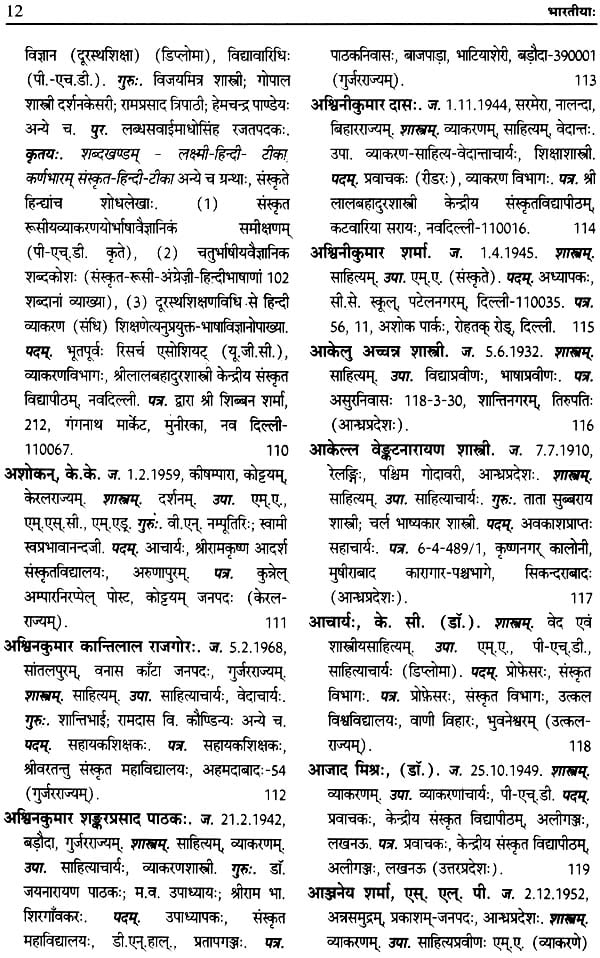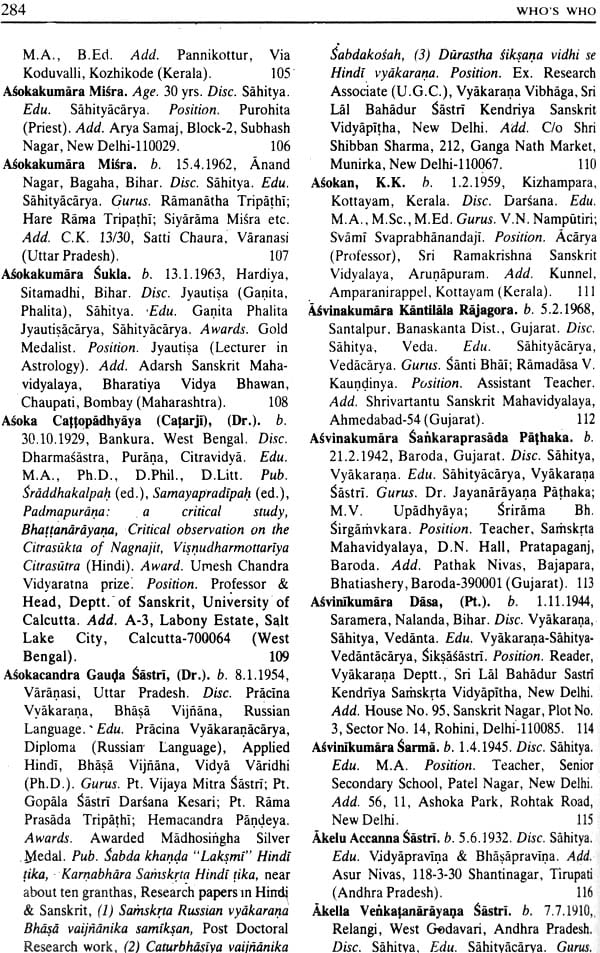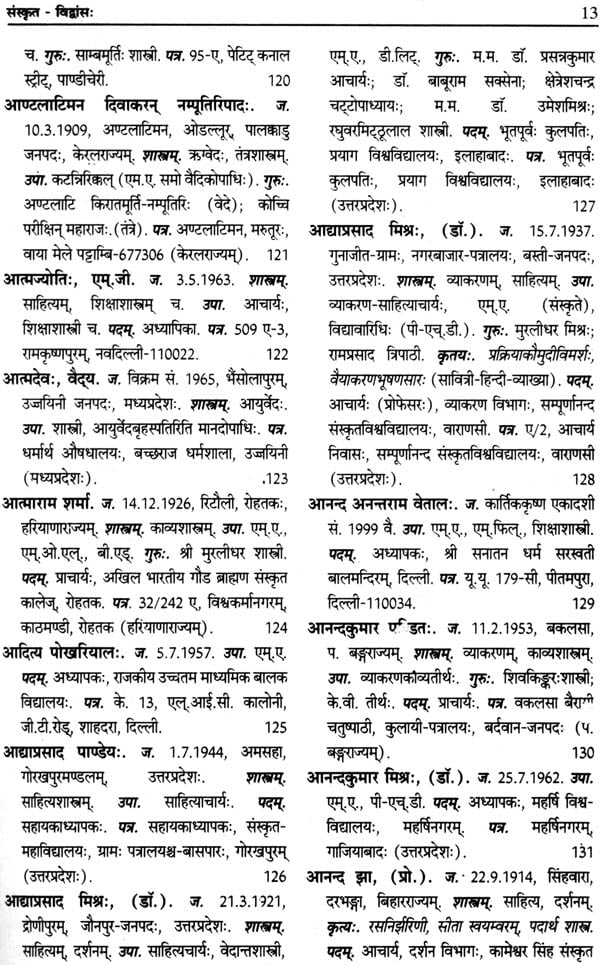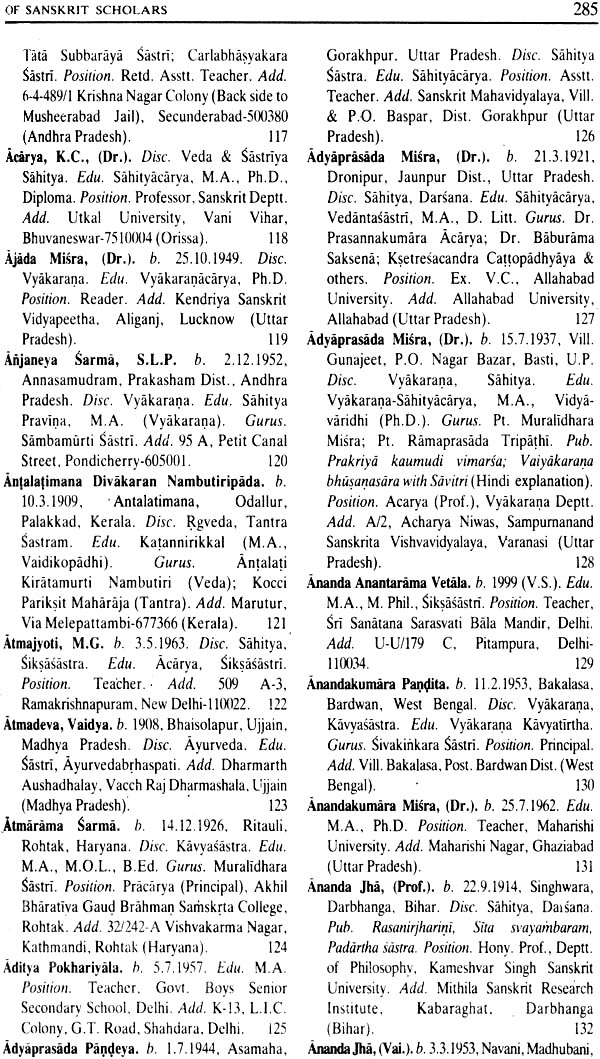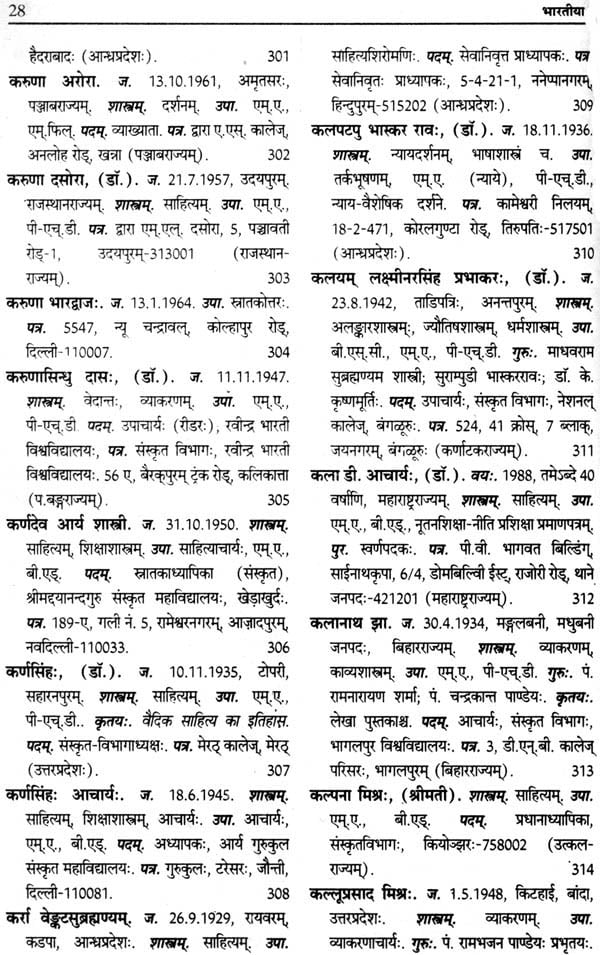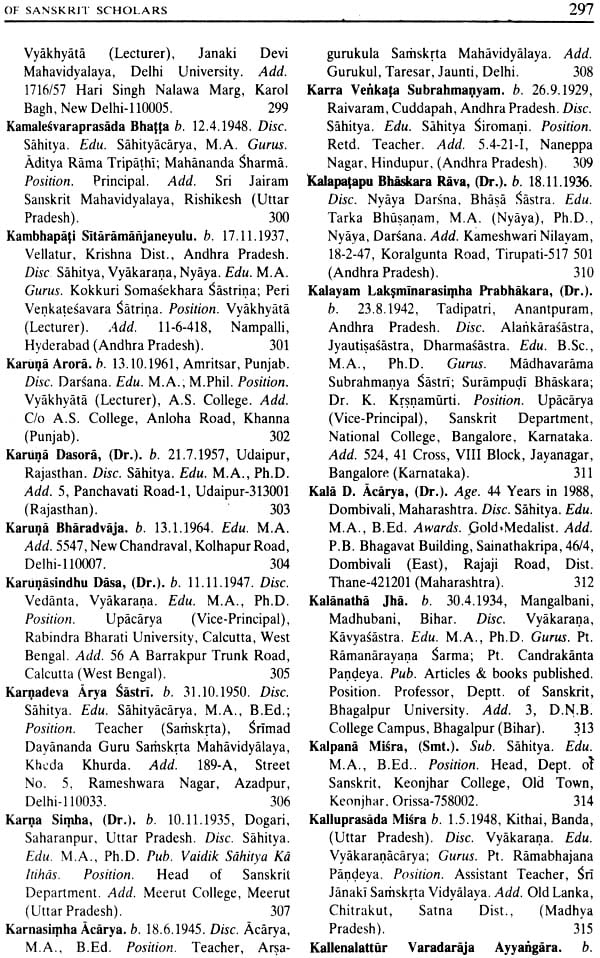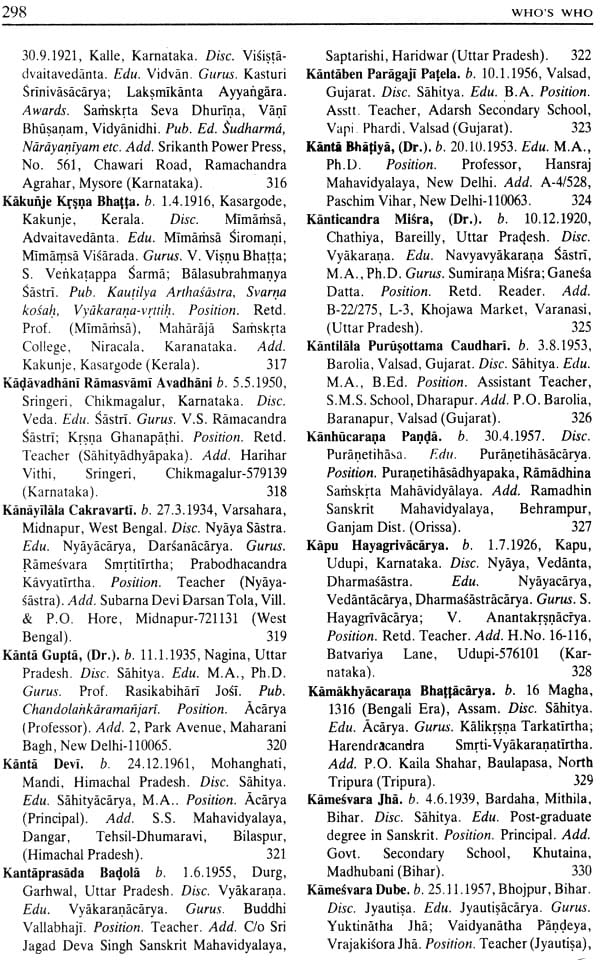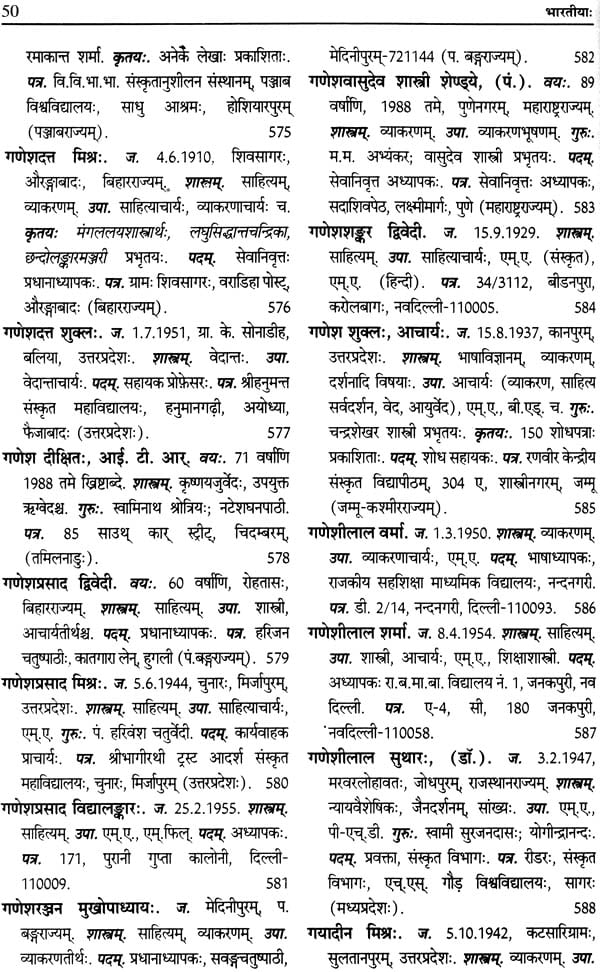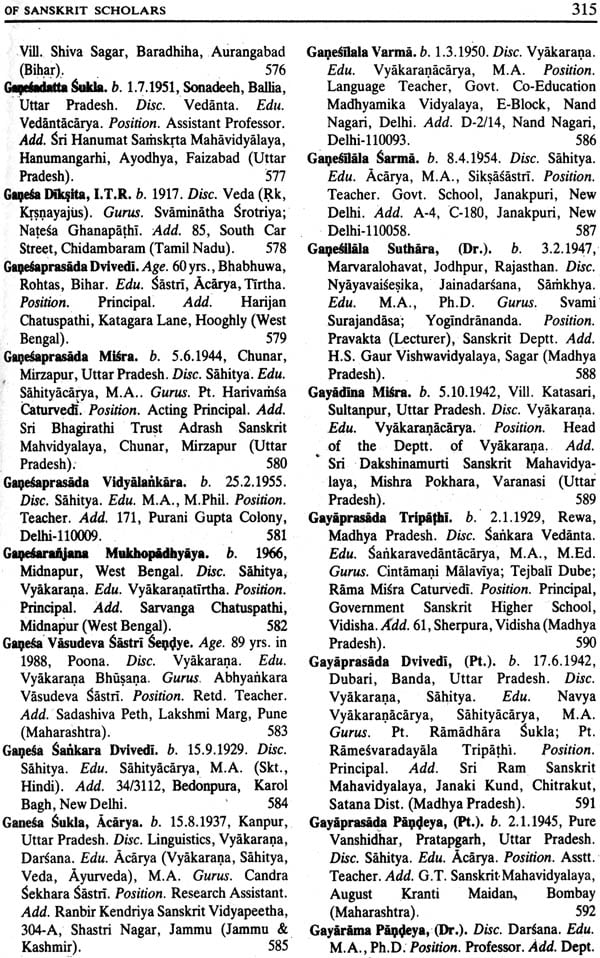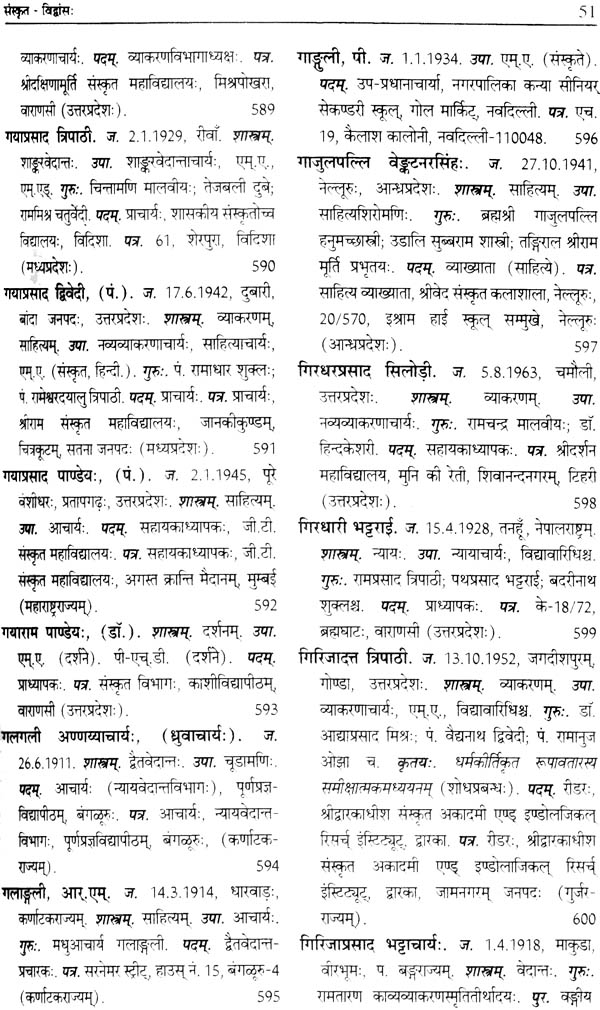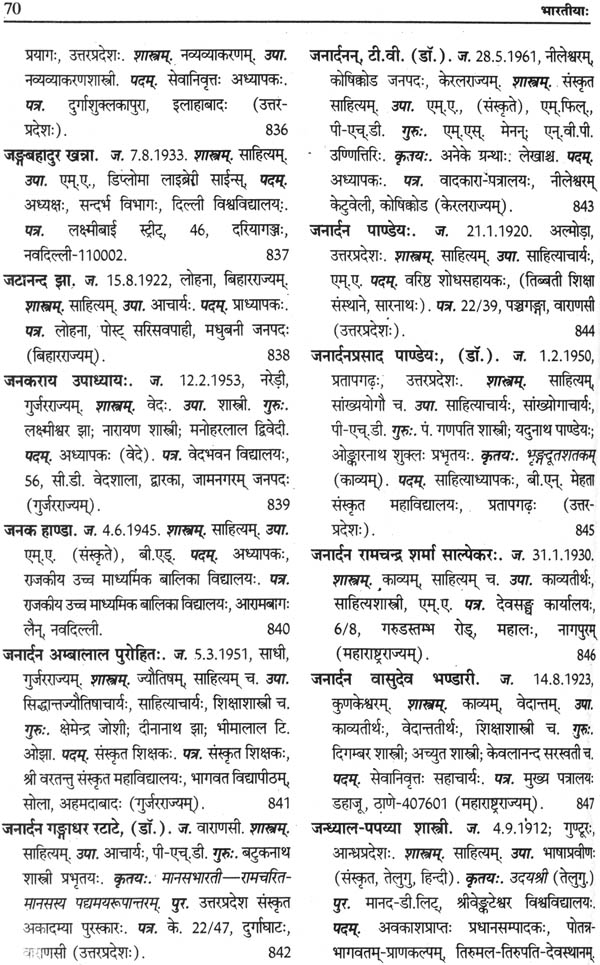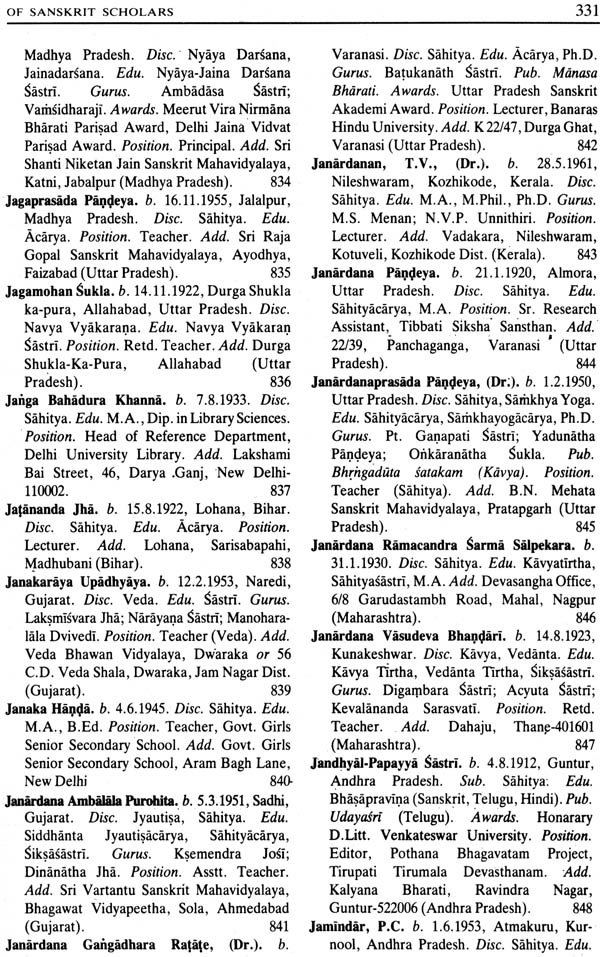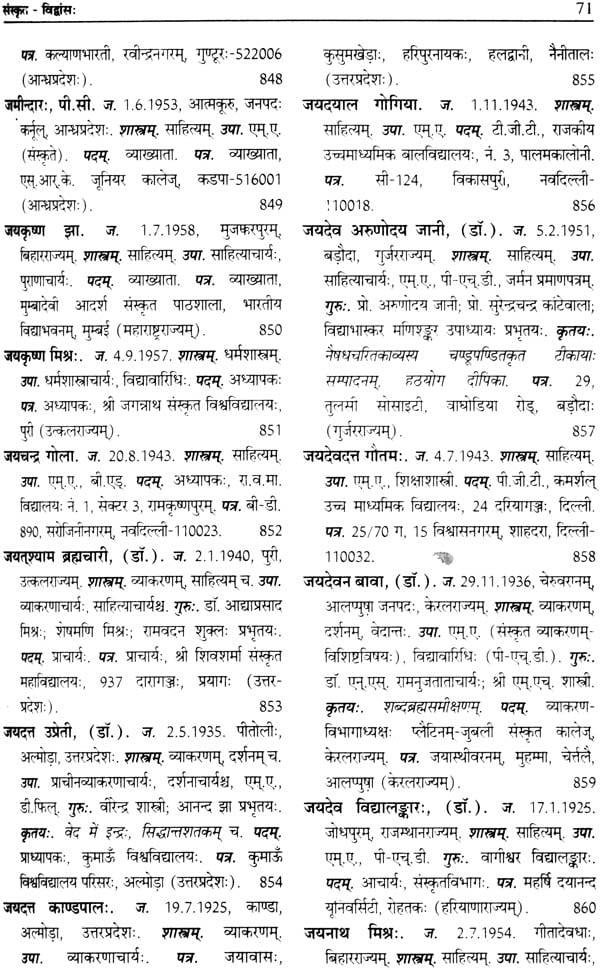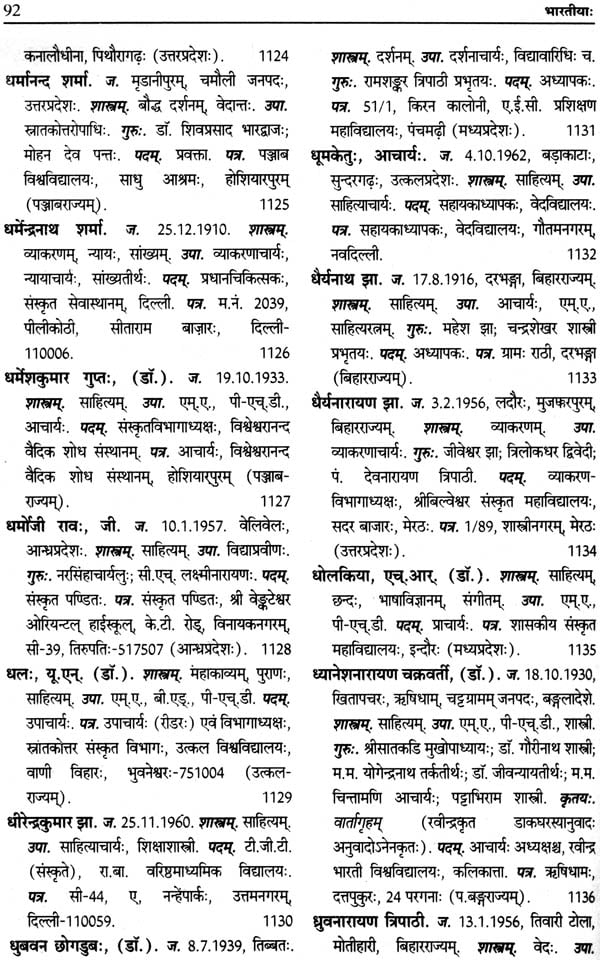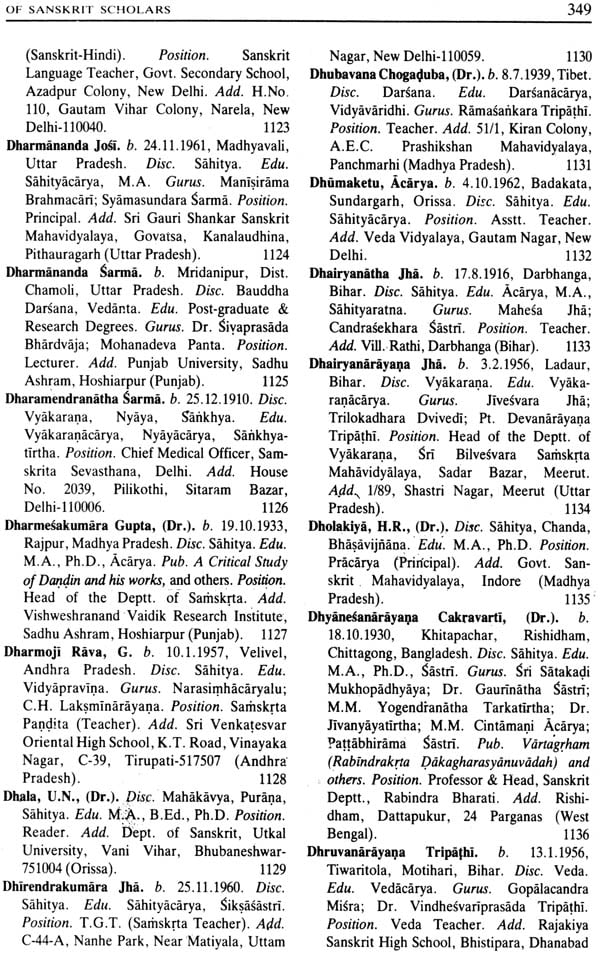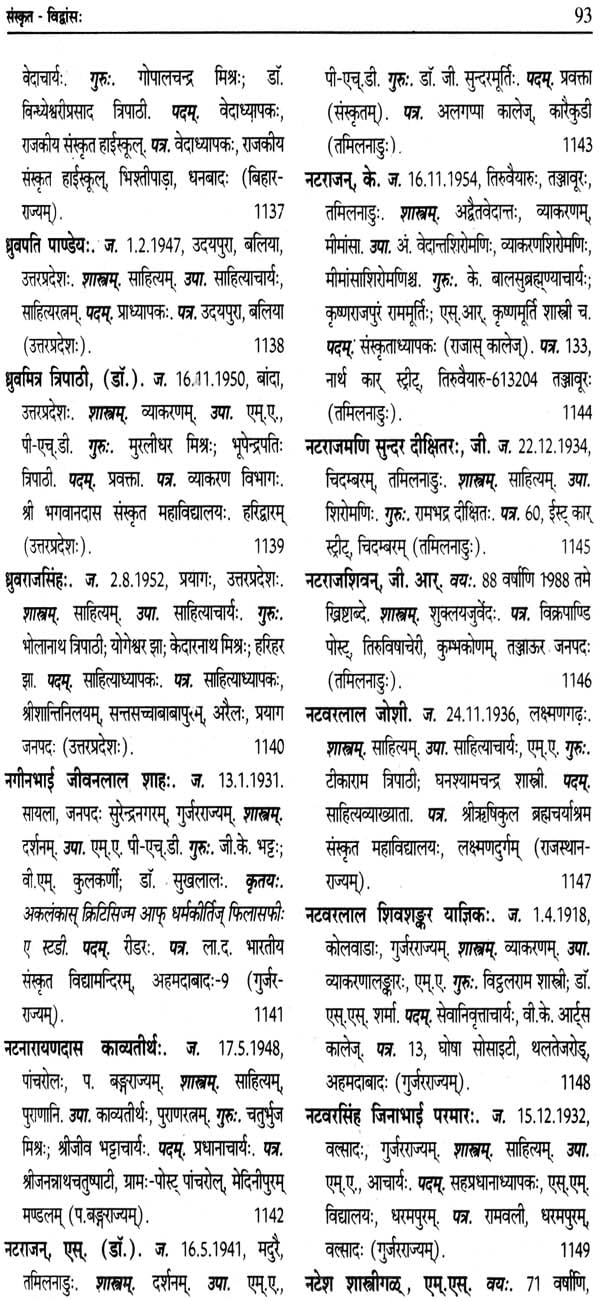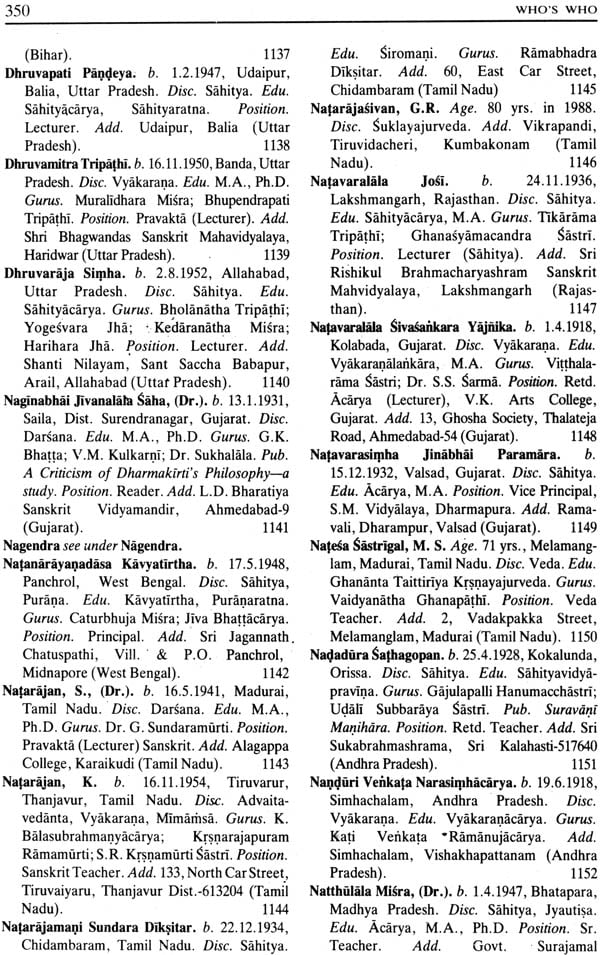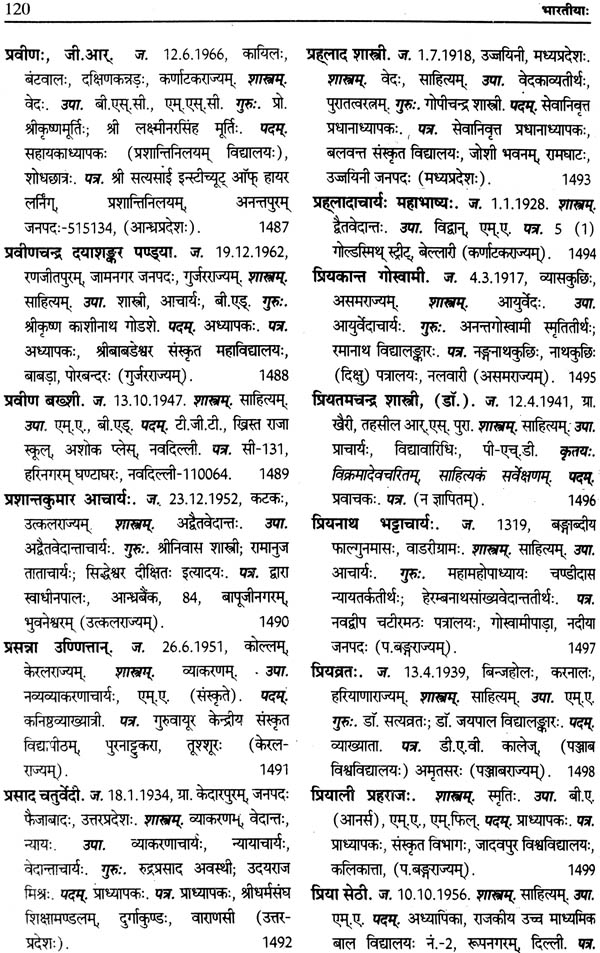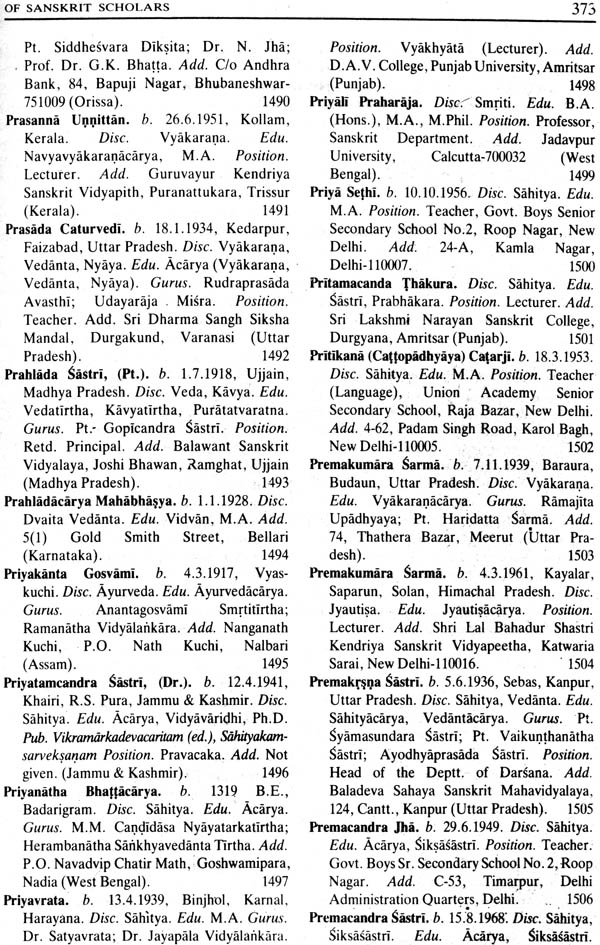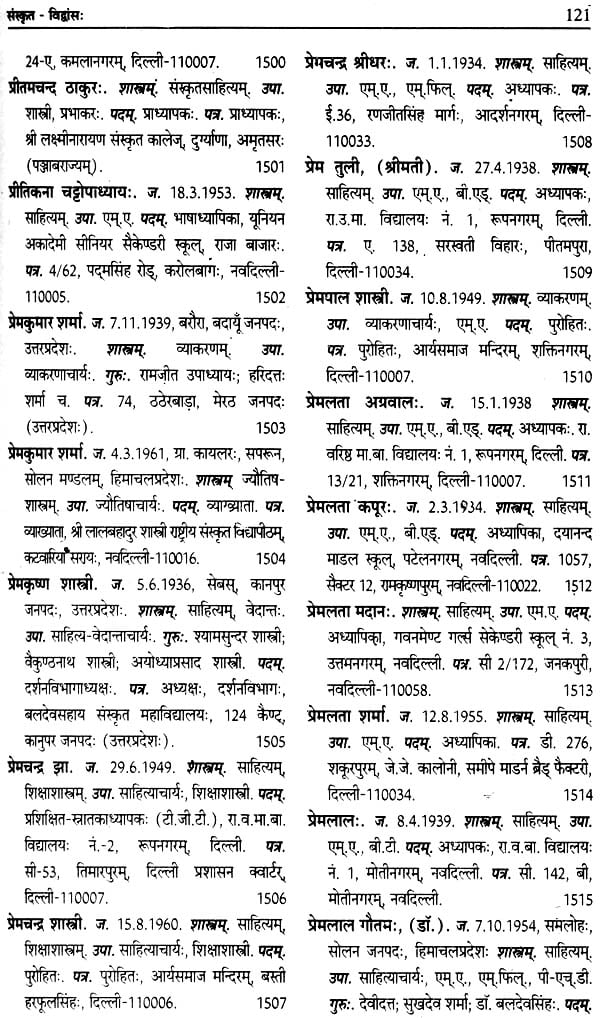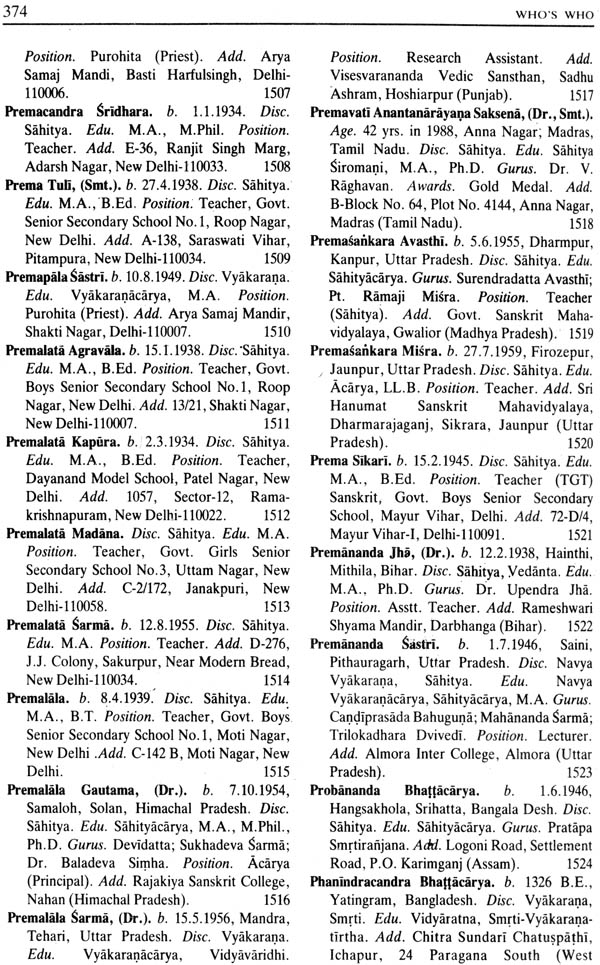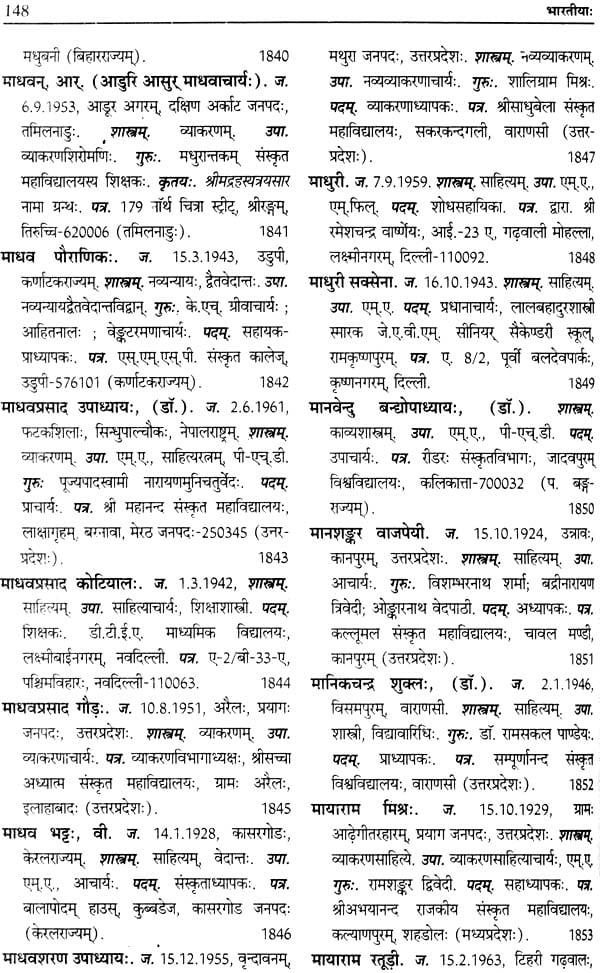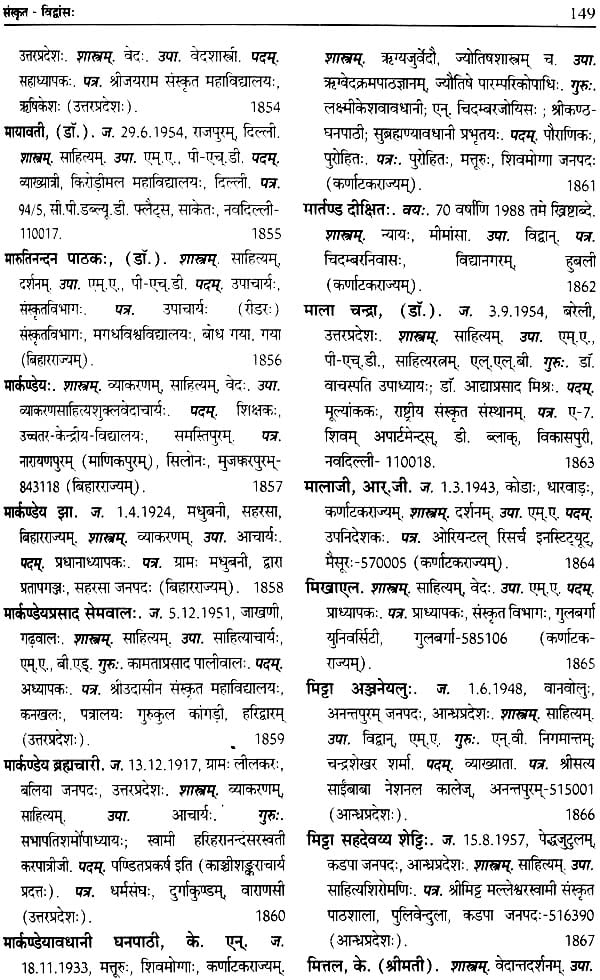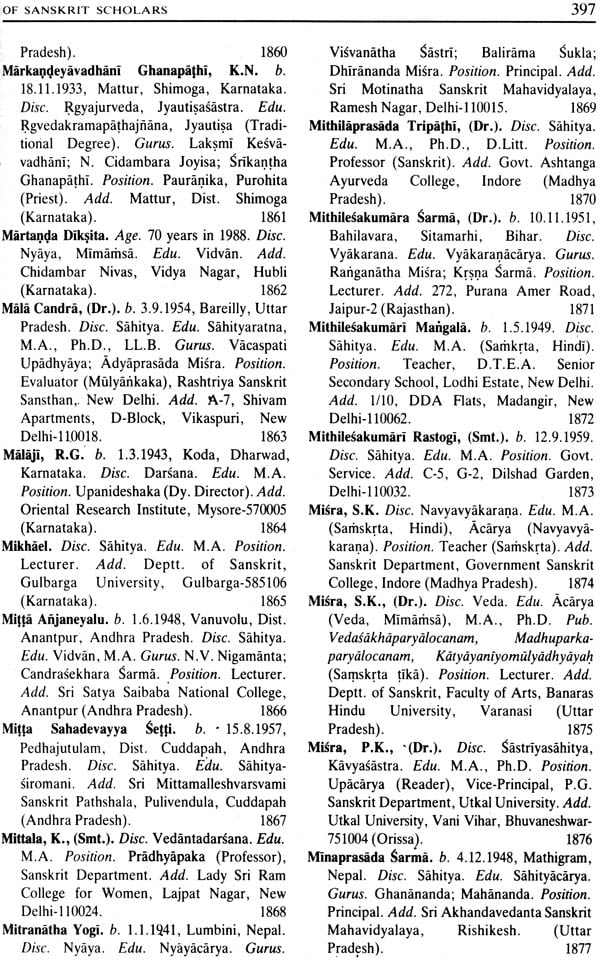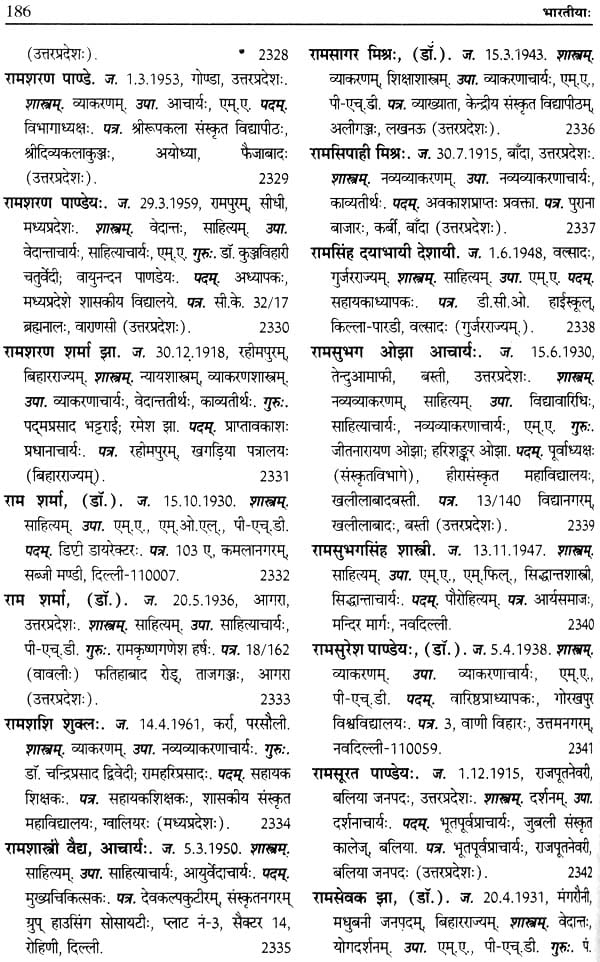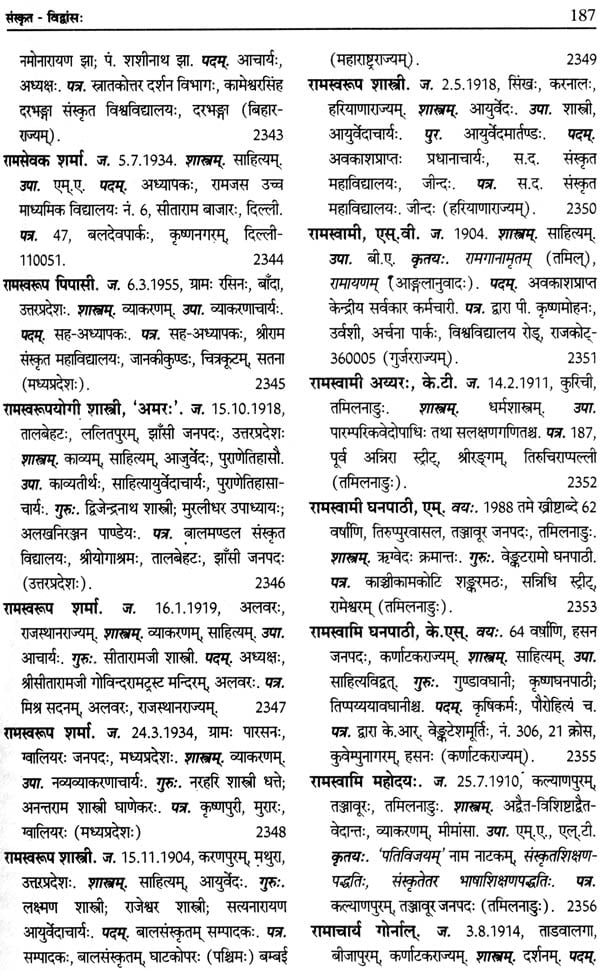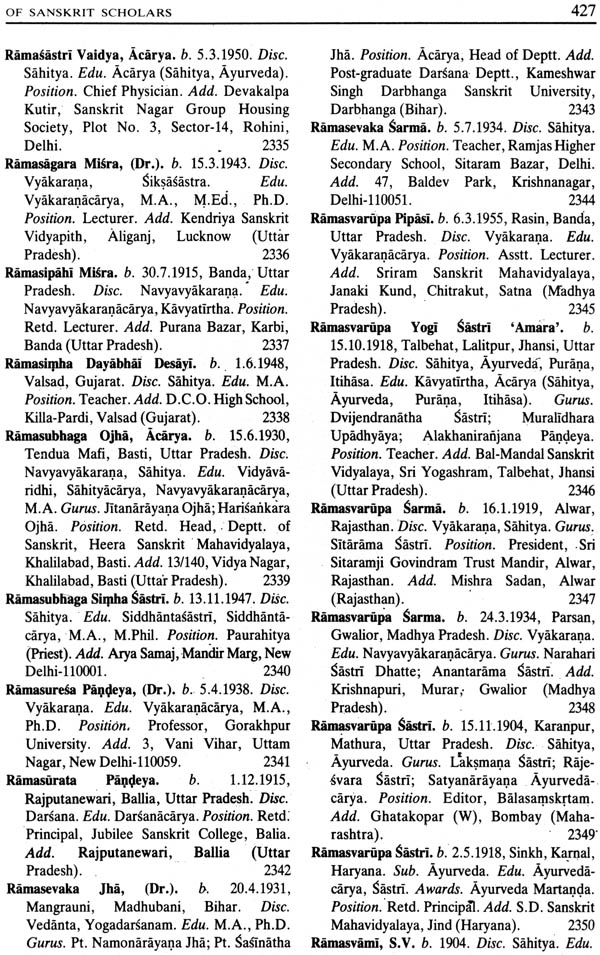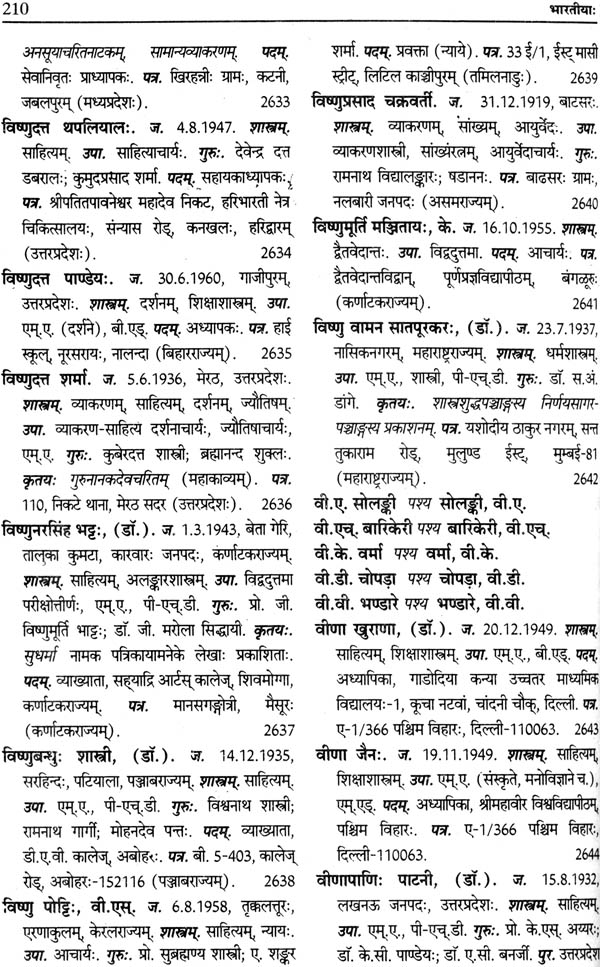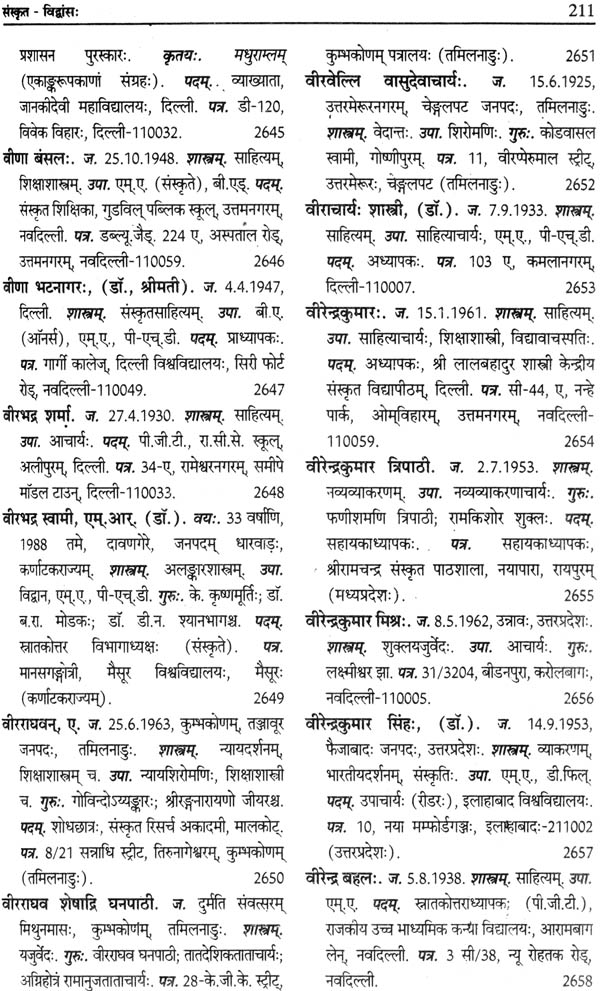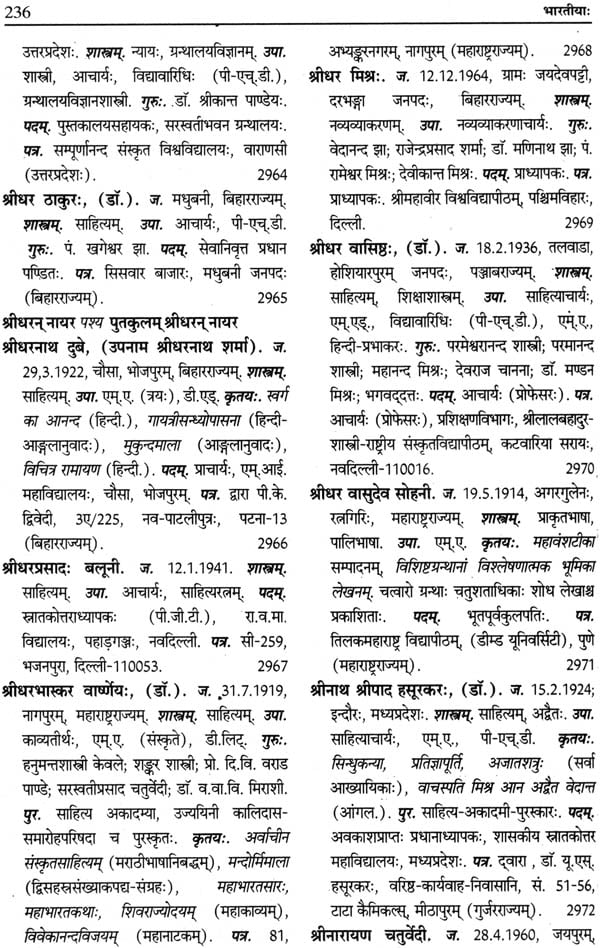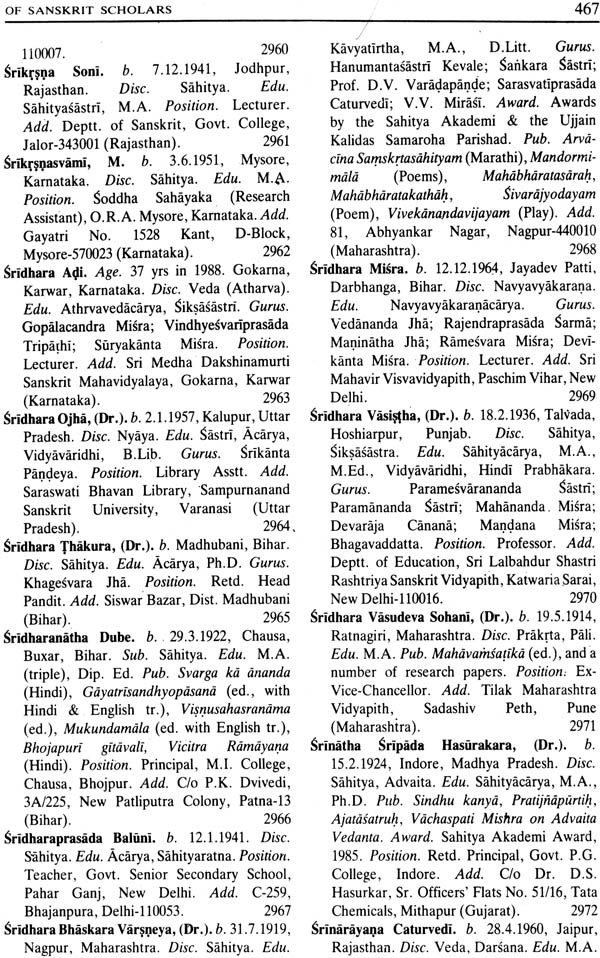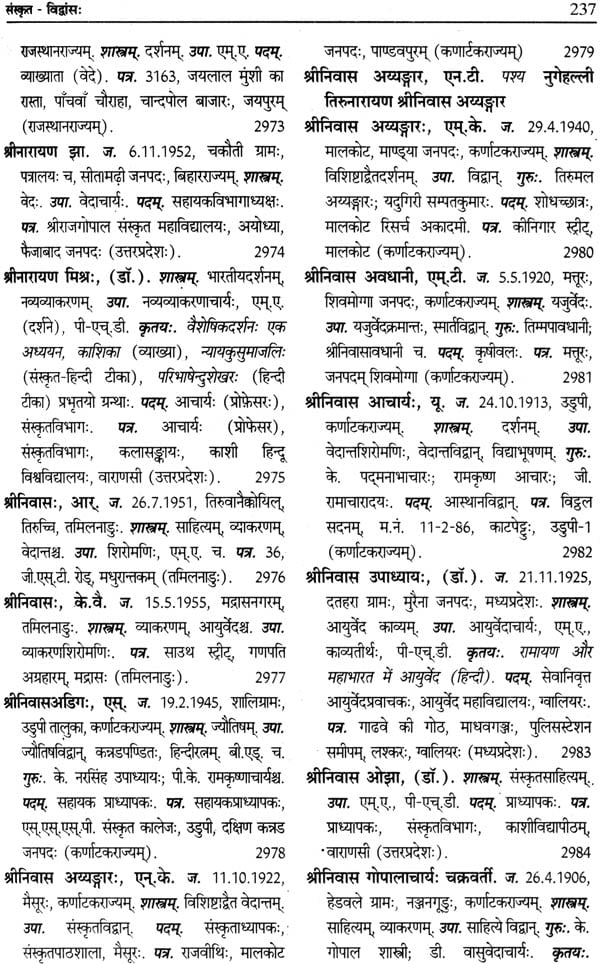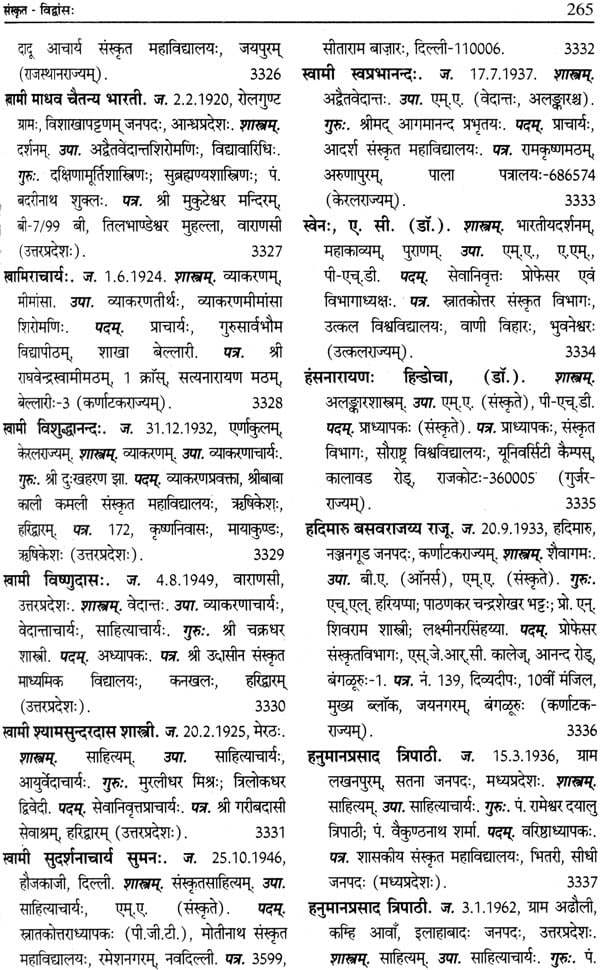
Who's Who of Sanskrit Scholars in India 1991 (An Old and Rare Book)
Book Specification
| Item Code: | NAK571 |
| Author: | K. C. Dut |
| Publisher: | Sahitya Akademi, Delhi |
| Language: | Sanskrit Text With English Transaltion |
| Edition: | 1994 |
| ISBN: | 8172016891 |
| Pages: | 600 |
| Cover: | Hardcover |
| Other Details | 9.5 inch x 6.5 inch |
| Weight | 1.60 kg |
Book Description
The who's who of Sanskrit Scholars in India' is a pioneering effort to compile and publish a reference tool in the field of Sanskrit scholarship. Prof. Daya Krishna explains the circulm-stances of its compilation in his foreword to the book: "It is a sad fact that the very structure of institutional segregation which has been fostered and perpetuated in this country even after independence make it almost impossible to become aware of the fact that there literally are thousands of eminent living practitioners of the various fields of classical learning scattered through the length and breadth of India from north to south, and east to west whose lingua franca of intellectual discourse is Sanskrit ..... the chance discovery of this invisible apartheid in the intellectual world of India and the realisation of the incalculable damage it has done ... led to a large number of attempts to break the barriers... the preparation and publication of this who's who is a part of this larger attempt. This volume has a first part in Sanskrit and a second part in English: with state wise and subject wise indexes of the living Sanskrit scholars in India. A unique and invaluable guide to Sanskrit scholarship in the country.
The idea of a who's who of classical scholars in India arose some ten years back when, by a series of chance accidents, I began to discover the world of classical scholarship in India which seemed so vibrant, alive and widespread that it was difficult to believe how one could have lived and grown as an intellectual in the academic world of India and not known about it, or interacted with it during the whole course of one's long life devoted to the pursuit of knowledge, including the one concerned with those types which had flourished in this country and about which eminent people did not tire of boasting from public platforms, day in and day out. Yes it is a sad fact that the very structure of institutional segregation which has been fostered and perpetuated in the country even after independence makes it almost impossible to become aware of the fact that there literally are thousands of eminent living practitioners in the various fields of classical learning scattered through the length and breadth of India from north to south and east to west, whose lingua franca of intellectual discourse have little to do with those which were developed in the long period of its history up till now. The chance discovery of this invisible apartheid in the intellectual world of India and the realization of the incalculable damage it has done to both the parties across the dividing line led to a large number of attempts to break the barriers hindering the awareness of each on the part of the other, and the dialogue between the two. The preparation and publication of this who's who of classical scholars in India is a part of this large r attempt and should be seen in this perspective. Already two volumes conveying some of the flavour and the diverse directions this enterprise has taken have seen the light of day. Indian's Intellectual Traditions (1987) and samvada (1991) try to give some idea of the two facets of the enterprise we have been engaged in. The Preface to samvada gices thedetails not only of the Rege experiment at Poona of which it was the outcome, but also of many other activities to which it has given rise to and of which the completion and publication of the who's project was such an important part. The story of the Who's who project is itself interesting in ways than one. So many persons an institutions have been involved in it, and so many times it has seemed that it will never be completed or that the material that had been collected was lost and thus irretrievable, that it can only be regarded as a miracle that it has now not only been completed but ready to go to the press and become available to the scholarly world for whom it was meant from the beginning. The miracle, however, would not have been possible but for the efforts of two persons, Prof. Indranath Choudhuri and Shri K. C. Dutt, both of the Sahitya Akademi, who not only retrieved the whole material from the Rashtriya Sanskrit Sansthan where most of it had been prepared under a grant from the Ford Foundation, and where due to many changes in the top administration the work on it was not only done in fits and starts, almost stopping many a time, but where the original material collected was misplaced and the final press copy had to be based on the manuscript supplied by the sansthan. Even before the Rashtriya Sanskrit Sansthan came into the picture, the Indian Council of Philosophical Research had taken the initiative in this, as in many other fields, and launched the project on its own and started the work of collecting the information concerning the classical scholars in India. Later, when it came to know of the grant from the Ford Foundation to the Rashtriya Sanskrit Sansthan for carrying out this project on a massive national scale, it handed over the material it had collected to the Rashtriya Sanskrit Sansthan to avoid duplication in the work on the project. The Sahitya Akademi had also been involved at the stage when the project was being handled b the Indian Council of philosophical research and had taken the initiative in advertising in the papers in the regional languages seeking information about the traditional scholars who normally know only Sanskrit and the language of the region they live in. The material so collected by diverse agencies was ultimately handed over to the sahitya Akademi for editing and giving in shape before publication. Shri K. C. Dutt took the responsibility and completed it in record time. Had it not been for his extraordinary commitment to the cause of the publication of the material and the wholehearted commitment to the cause of the publication of the material and the wholehearted enthusiasm of Prof. Indranath Choudhuri, the Secretary of the Akademi, it is doubtful if this work will have even been completed. They deserve the thanks of everyone who is interested in learning anything about the living representatives of India's classical traditions in various fields of knowledge. The unique feature of the information compiled in this who's who is that it gives information not the first time, a detailed information regarding all the traditional scholars in India in a subject such as, say, Nyaya as well as the information regarding how many traditional scholars in this subject are, say in Tamil Nadu. Now that we have this information scholars in various subjects in India. The task of initiating a dialogue with them on academic issues relating to those fields of knowledge in which they have the expertise, should become easier. Let us hope scholars will take advantage of it and build bridges and establish dialogues with the living traditions advantage of it and build bridges and establish dialogues with the living traditions of the country in all fields where classical knowledge still flourishes.
| Sanskrit Section | 1-273 | |
| Abbreviations | 2 | |
| English Section | 275 | |
| Transliteration Table (Devanagari) | 275 | |
| Abbreviations | 276 | |
| Glossary of Sanskrit Words | 276-497 | |
| Appendices | 499-594 | |
| 1 | State wise list of Scholars | 499 |
| 2 | Subject wise list of Scholars | 535 |
| 3 | Additional Addresses | 583 |
